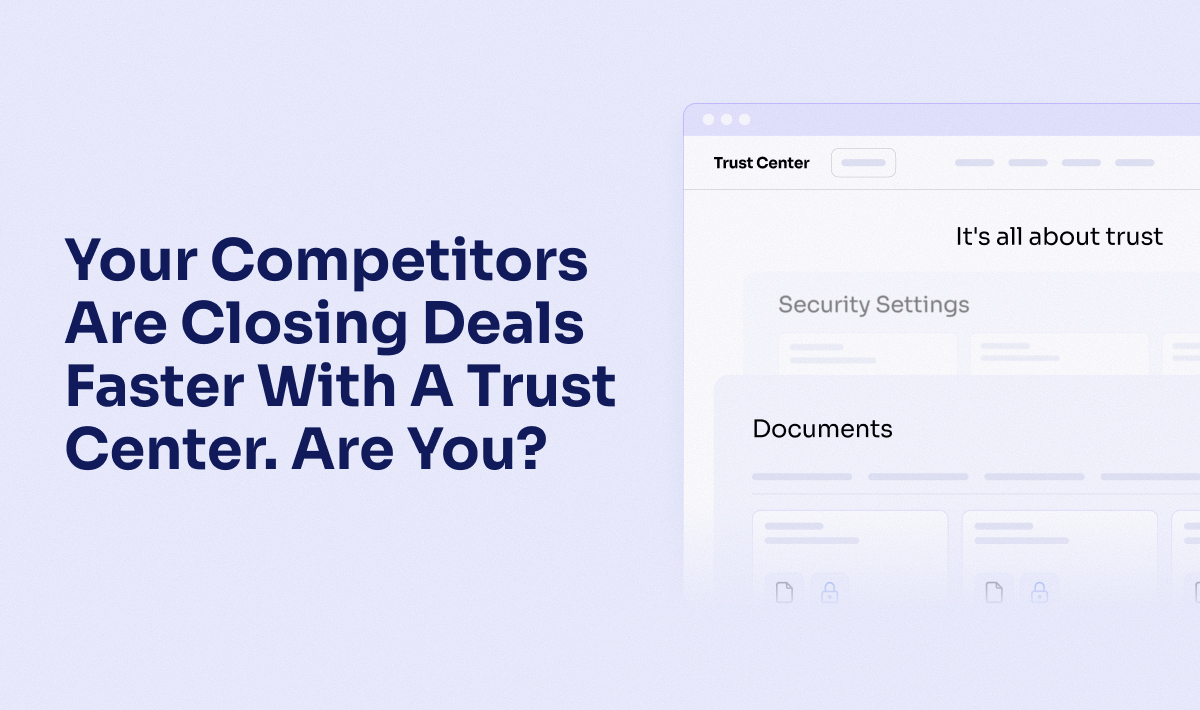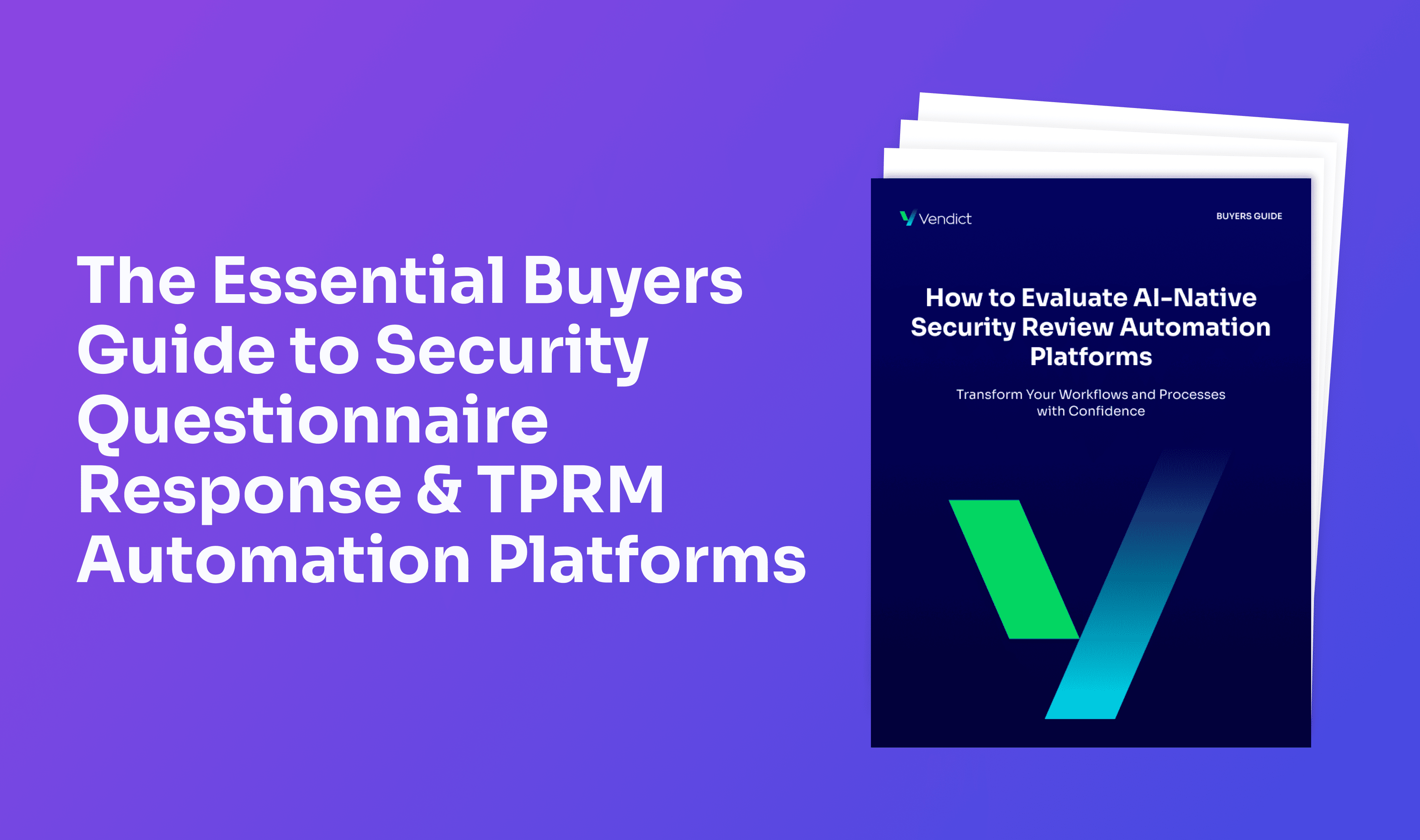50 Tech professionals reveal: The top 3 time-wasters and productivity boosters in compliance management

One of the most important things for me as a CEO is to get a full understanding of our clients’ business challenges around data and compliance.
A big part of my job in leading Vendict is to listen carefully to the customers, understand their problems, and act on their feedback..
A few months ago, the Vendict team decided to pose some questions to tech and compliance professionals to get their take on how compliance affects their jobs.
Well, the results are in. And I’ve got to say, they’re pretty revealing.
During the survey, we interviewed over 50 individuals, including account managers, sales professionals, and SDRs working in the SaaS, PaaS, IoT, and other tech areas. Each of them has years of experience dealing with security compliance in a business context. We asked each of them three questions:
1. What would you say is the biggest time-waster in your job?
I knew from the start that it was a risk to ask such a general question..
We didn’t offer multiple-choice answers. We just asked participants to write freely. The answers could have been very different, and it wouldn’t have been possible to pinpoint the problems I want to solve as a compliance expert..
But in the end, it was worth asking the questions.
Of the non-administrative challenges that respondents listed, the top three time-wasters they described were:
a) Lack of technology to hasten various tasks
b) Technical data not organized or readily available
c) Compliance documentation
Top five answers:
- “Lengthy RFPs with endless technical requirements”
- “Tedious tasks with no automation to help”
- “Poor channels to share relevant info from one department to another”
- “My biggest time-waster is manually filling out Security Questionnaires”
- “ Unnecessary tedious/outdated processes for sorting data”
This speaks volumes about the challenges companies are facing. It also demonstrates how simple technological tool integrations can make a significant difference in a team’s efficiency and overall productivity.. The third response on the list (compliance documentation) is essentially a combination of the first two problems—menial task overload and lack of data organization.
Lesson learned:
Adopting technological platforms that can automate menial tasks and help organize critical information are the investments with the biggest ROI.
2. What routine or process has been implemented in your workplace that has made the biggest difference in your productivity?
We’re all about efficiency at Vendict.
So naturally, I wanted to know what my target audience is up to when it comes to increasing efficiency in the workplace.
By far, the most common response to this question involved integrating technology to better manage information and databases (post-sales call meetings being the distant second).
Top five answers:
- “A central place where all communications and customer information can be logged”
- “Having the information needed to complete tasks in one central location and easily accessible”
- “Organizational tools to track data on previous sales and recurring customers”
- “A centralized place where all project and product updates can be logged and accessed by all team members”
- “A Dashboard to log the development of sales processes”
Getting all these similar answers from such a wide array of participants lends a lot of support to the lessons drawn from the first survey question, namely that keeping information organized is a huge driver of company performance. Remarkably, many participants (without us asking, of course) described in more detail why these integrations made their lives easier. The common thread came down to this: They had all this information just sitting there, in their own network, with no way of accessing it—until they brought on the appropriate platform.
3. Do you feel that customers’ security and compliance requirements are making your job more difficult? If so, in what ways?
Understanding the relationship between compliance and business is at the core of my company.
I’ve spent countless hours discussing this topic with clients. But I wanted to hear from a broader set of people in the field..
Now to be 100% honest, to my surprise, I’ve received a few sporadic “no” responses to this question. All I can say to that fortunate handful is: “Heaven has clearly smiled upon you.”
But the rest of the participants, as I’d anticipated, had a different story to tell.
The most common descriptions of how compliance made the job harder were:
a) numerous security inquiries that essentially all contained the same question.
b) time spent filling out security questionnaires, which delays sales cycles.
c) back-and-forth communication between the vendor and buyer holding up the deal from closing.
Top five answers:
- “Having to provide security details in specific formats delays sales cycles”
- “Implementing new or unique procedures for compliance affects my ability to perform my role consistently”
- “Compliance is very repetitive, as every client has their own way of asking what are essentially the same question”
- “Delays related to security compliance add a minimum of a week to any deal I work on”
- “Even after we have invested in compliance, clients will come up with additional demands and frameworks that we must comply with”
I think the most important thing to take away from the responses to this last question is how disruptive compliance can be for an enterprise.
It becomes a task with such high resource demands that it can hurt the company’s profitability and put a real dent in its ability to function.
What these responses, and indeed the whole survey, reaffirmed to me was that making compliance easier and more efficient for enterprises is not just a compliance issue—it’s also a business efficacy issue.
Unless an enterprise is able to achieve compliance in a smooth and simplified manner, it is essentially handicapped as a business..
That’s why empowering companies with compliance technology transforms compliance from a liability into one of their biggest assets.
Special thanks to the amazing participants who helped make this expert survey a reality:
- Vaishak Gopi
- Joe Wilson
- Stephanie Krawczyk
- Kevin Nguyen
- Trevor Pernice
- Leran Shoshani
- Matt Modena
- Gavin Olson
- Brett Gardner
- Douglas Behrend
- Tanmay Mehra
- Christy Teppenpaw










.png)